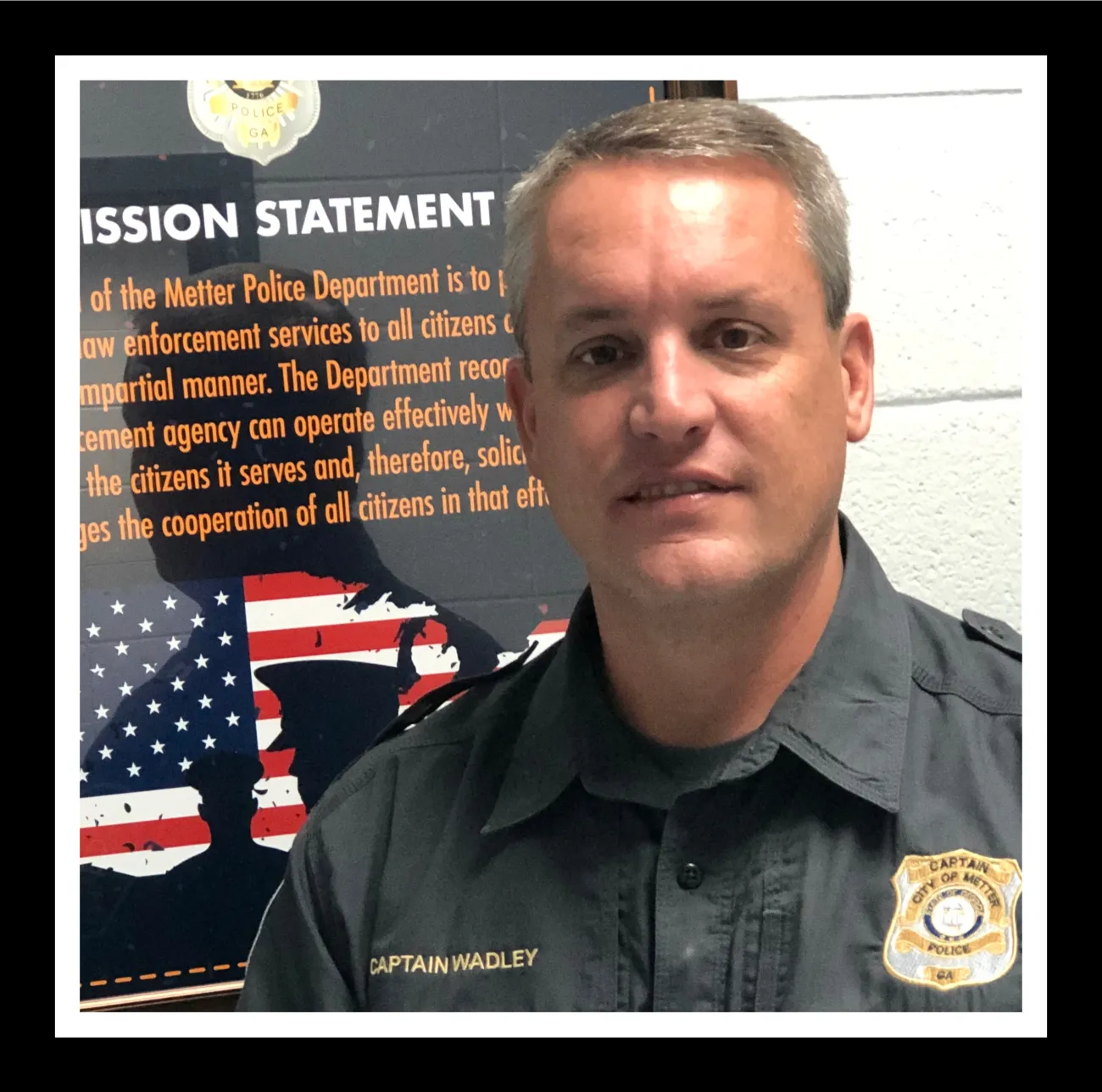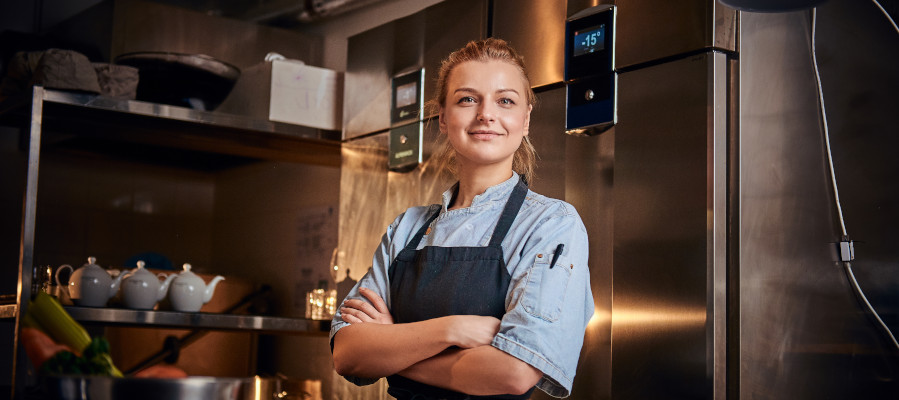‘Training And Education Never Stop,’ Says Longtime Police Officer

Capt. Kevin Wadley is the assistant police chief for the city of Metter in middle Georgia. Wadley, 45, has been in law enforcement for more than 20 years, in a variety of roles.
He serves as the state certification manager and oversees the department's training, municipal court, departmental complaints and community programs. He also conducts all background investigations on new recruits and applicants and conducts the hiring and on-boarding process for the department.
Why did you get into this line of work? And did you always want to do this?
I began my career in law enforcement in 1997 as a communications officer with the city of Statesboro, and in 1998 I became a POST-certified police officer for the city. [POST stands for Peace Officers Standards and Training.] In 2000, I was promoted to the rank of corporal, which is a first-line supervisor in the patrol bureau, and in 2003 I was promoted to detective.
For about six years, I was a task force agent assigned to the Federal Drug Enforcement Administration in Savannah. In 2012, I returned to the Statesboro Police Department investigations bureau. In 2018, I accepted my current position as a captain with the City of Metter Police Department. I'm also now the assistant chief of police.
I got involved in policing primarily because I was looking for a career that would put me in a mobile situation and give me the opportunity to work throughout my community. I wanted each day to be different and offer a different set of challenges. I wasn’t interested in working a mundane 9-to-5 job, and I always knew that I would work in some sort of law enforcement.
I personally believe that I was called to do this work, and for that, I have made a difference in the lives of many people over the past 23 years.
What does a typical day for a police officer look like?
A typical day for me now is primarily handling day-to-day operations such as policy review and implementation, reviewing officer training records, reviewing police reports (both accident and incident reports), handling personnel issues within the department and working alongside members of the agency by helping conduct traffic enforcement, writing police reports and assisting in investigations from time to time. My position now covers a wide range of responsibilities, but over the years I have learned to multi-task very well.
What’s the most common misconception about your job?
The most common misconception about my job is that people believe that police officers do nothing but handle exciting adventures every day. There is nothing farther from the truth than this.
Police work can become very monotonous at times, just like with any job. The general public believes that police officers get to do all the "cool stuff." The fact is, being a police officer requires you to be put in very precarious situations, to look and witness things that stay embedded in your mind for many years and to work in environments that most people would not be able to handle. Police work is not what television has portrayed it to be. In fact, it’s the complete opposite.
How did you train to become a police officer?
Training to be a good police officer never stops. It is important that anyone who is considering this profession to understand that training and education never stop. Training is very strongly emphasized and required, and education is always encouraged.
What personality traits or qualities would make someone a good fit for this job?
The best personality traits a person can possess for this type of career are high interpersonal communication skills, common sense, the ability to reason — using both common sense and a fair and impartial attitude — and the ability to work with people from all backgrounds and diversities.
Is there a time where you felt your job made a real impact on someone’s life?
There have been numerous times that my job made a real impact on others’ lives. Although in this career, not everyone is on the receiving end of a positive impact, but I could tell stories for hours about how I was a positive influence in someone else’s life because of my actions as a police officer.
The one moment that I look back on my career and feel the impact I made on someone was when I actually became a friend and mentor to a young man that I ended up sending to federal prison for seven years. This young man called me from prison quite often, just to talk and to tell me thank you for doing what I did, because if it had not been for me catching him, he never would have turned his life around. His name was Mathew, and I will never forget him.
LEARN MORE:
Feeling overwhelmed with options?
Take the SkillPointe Quiz
It’s OK if you don’t know what you want to do. This short visual quiz will help you identify skills-based careers that best match your personality.

